Columbia Let Him Walk. What if He’s Guilty?
How the case of Mohsen Mahdawi exemplifies a disturbing pattern of institutional amnesia.
“Warm.” “Personable.” “Beloved.”
These were the words used to describe Dr. Robert Hadden—a gynecologist and serial predator who worked at Columbia University’s Irving Medical Center for more than two decades. Shielded by institutional silence, he continued treating patients for years after hundreds of women reported his abuse. The University has since agreed to pay nearly $1 billion in settlements, faced a criminal investigation for destroying evidence, and watched its former president resign under scrutiny.
And yet, Columbia seems poised to repeat history.
Mohsen Mahdawi, a controversial student agitator recently released from ICE custody, was characterized by sociology professor Gil Eyal as “a gentle, eloquent, and deeply sensitive young man who embodies some of the best qualities we expect of students at Columbia.”
On May 18, Mahdawi graduated from Columbia. As he crossed the stage, he received a standing ovation and an embrace from Curtis Rodgers, the Vice Dean of the School of General Studies. The following day, Columbia College graduates interrupted Acting President Claire Shipman’s remarks, chanting “Free Mahmoud”—a reference to Mahmoud Khalil, a fellow Palestinian student and friend of Mahdawi, who remains in custody pending an immigration hearing.
In a statement issued last Tuesday, Mahdawi reflected on his college experience:
“Columbia gave me access to resources and spaces that helped shape me. But it also punished me for using my voice. I was harassed, surveilled, and isolated. And when Columbia silenced students like me—when it treated our grief and outrage as threats—it mirrored the same systems we’re resisting.”
Mahdawi plans to matriculate to Columbia’s School of International and Public Affairs (SIPA). Despite a record of incendiary behavior, Columbia has refrained from publicly addressing any allegations of misconduct. What President Shipman did say, though, was that she was “relieved to see that Mohsen has been released” and “hope[s] he can be here for graduation.”
On Wednesday, two Israeli Embassy aides were murdered outside the Lillian and Albert Small Capital Jewish Museum in Washington, D.C. The victims, identified as Yaron Lischinsky and Sarah Milgrim, were a young couple who had attended a “Young Diplomats Reception” hosted by the American Jewish Committee. The suspect, Elias Rodriguez, 30, was observed pacing outside the museum before approaching a group of four individuals and opening fire, killing Lischinsky and Milgrim. After the attack, Rodriguez entered the museum and was detained by event security. While in custody, he reportedly chanted “Free, free Palestine!” and disclosed the location of the discarded weapon. On Thursday, U.S. Attorney Jeanine Ferris Pirro, FBI Assistant Director in Charge Steven J. Jensen, and Metropolitan Police Department Chief Pamela A. Smith charged Rodriguez with two counts of first-degree murder. Rodriguez is a member of the Party for Socialism and Liberation, an organization that helped mobilize public support for Mahdawi.
Mahdawi’s educational background has received little scrutiny. Now 34, Mahdawi spent the better part of two decades at three different undergraduate institutions. Notably, Mahdawi claims to have studied at Dartmouth—however, the college disavowed any record of his enrollment. This is just one questionable detail among many that is disregarded by his supporters.
Defenders laud Mahdawi as a pacifist, unfairly maligned by the Trump administration. He’s styled himself as a refugee-turned-reformer and aspiring public servant.
The record tells another story.
The Department of Homeland Security reported that Mahdawi allegedly told a gun retailer he used firearms to “kill Jews while he was in Palestine.” Others recalled Mahdawi stating, “I like to kill Jews,” and that he manufactured arms for Hezbollah. This investigation was not, as critics suggested, a neo-McCarthyist witch hunt, nor a product of Trump-era paranoia. The probe began under the Obama administration, long before Mahdawi became a cause célèbre.
Court filings and social media posts paint a similarly disturbing picture. Mahdawi touted his cousin, Maysara Masharqa, a senior Al-Aqsa Martyrs Brigade operative killed alongside Hamas leadership in Jenin, as a “fierce resistance fighter” and “dreamer of liberation.” He mourned his uncle—convicted of orchestrating a suicide bombing that injured over 60 Israelis—as a victim of Zionist cruelty. At a protest last January, Mahdawi glorified martyrdom, declaring: “There’s nothing more honorable than dying for a noble cause.”
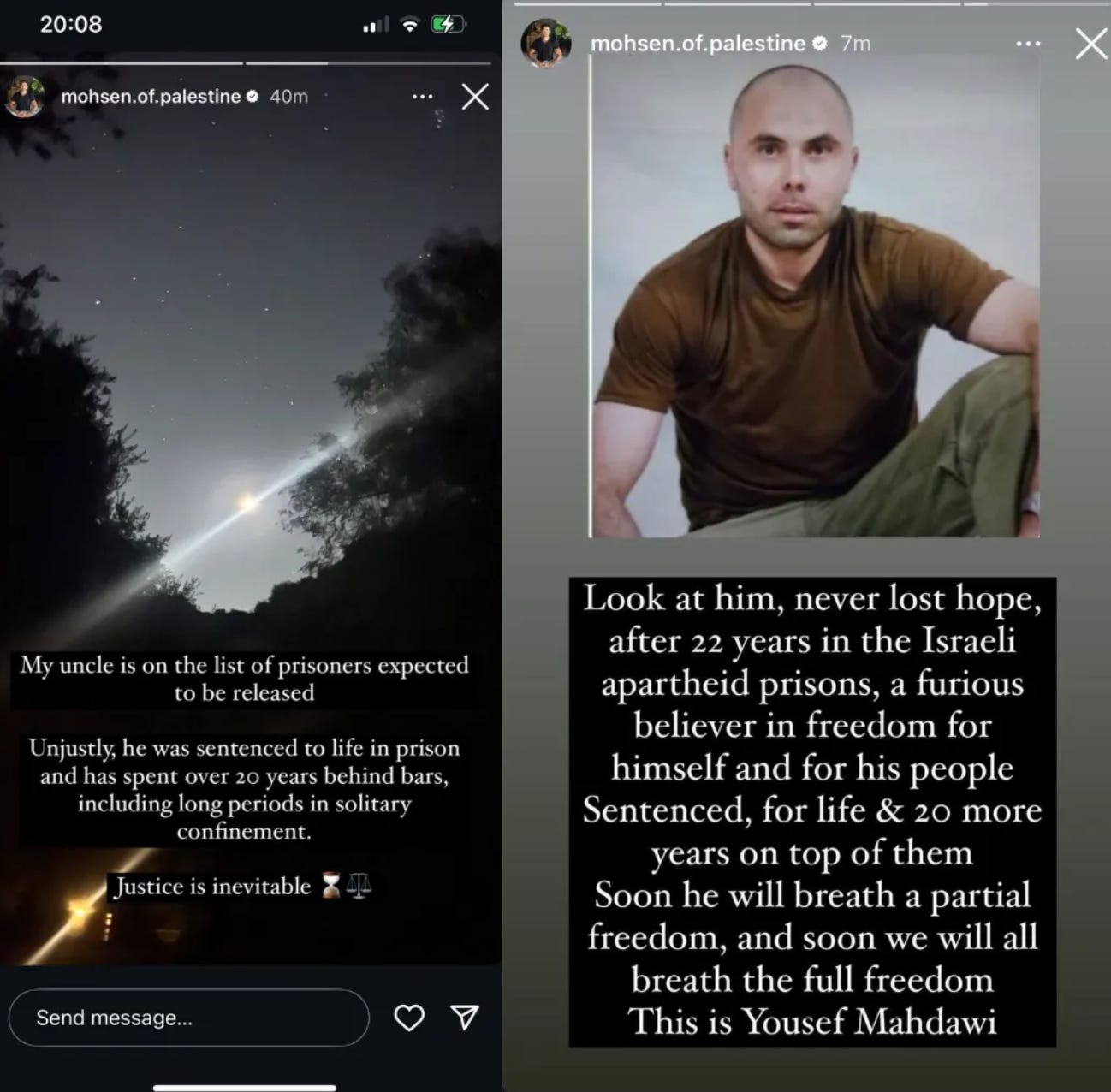
Mahdawi led the Fatah student movement at Birzeit University in Ramallah. In 2012, he launched a Facebook group to publicize “In the House of a Fighter,” a TV program produced by his mother, Abeer Shamali, to extol terrorists. Mahdawi also posted several tributes to Hamas and PFLP militants and promoted a poem commemorating Dalal Mughrabi—a Fatah operative who murdered 38 Israeli civilians, including 13 children.

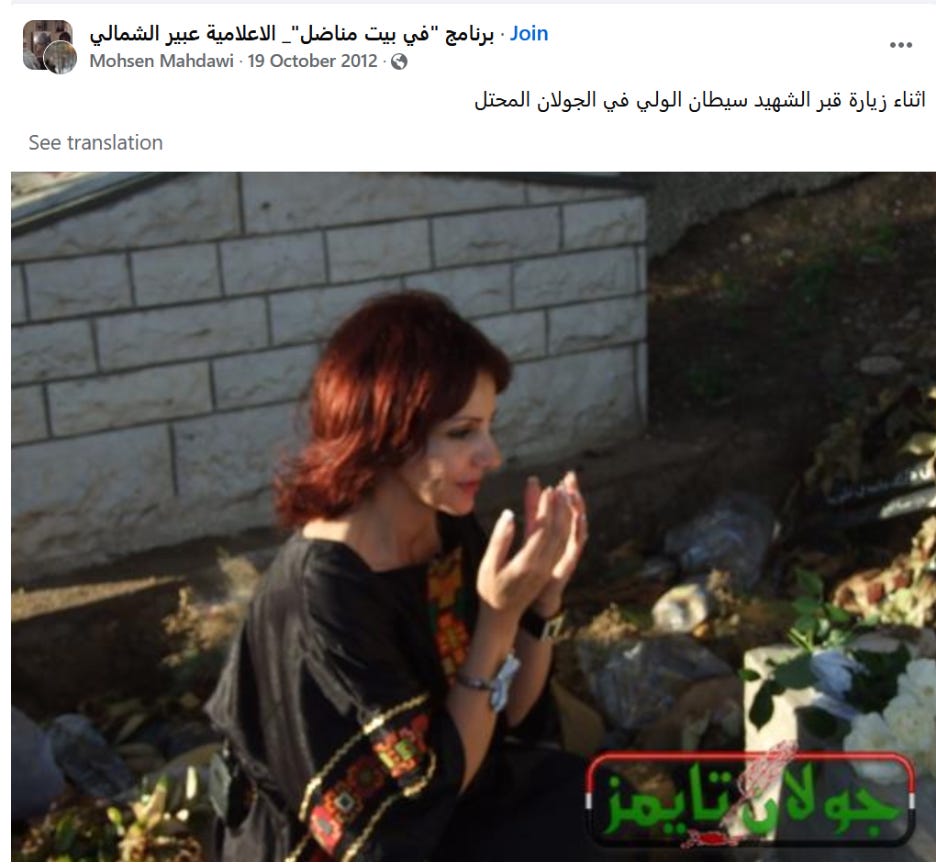
Mahdawi co-authored a statement justifying Hamas’s attacks on October 7, 2023, and maintained close ties with Within Our Lifetime, and Unity of Fields, organizations that openly advocate for the destruction of Israel, America, and Western civilization. Rather than reproach Mahdawi, Columbia invited him to join a stipend-backed initiative aimed at exploring “differences in points of view.”
Last year, Mahdawi disavowed Columbia University Apartheid Divest’s anti-normalization policy, which established him as a seemingly moderate interlocutor among Columbia’s polarized student body. He engaged in dialogue only when personally advantageous, selectively editing videos to portray Zionists as intransigent and discredit students who had approached him in good faith. How can one claim a moral high ground whilst unapologetically supporting Hamas?
Columbia’s School of General Studies was founded to accommodate World War II veterans and has long welcomed students who served their country with distinction. That ethos is hard to square with the acceptance of a man who spent years venerating terrorists. Evidently, Columbia’s admissions committee mistook provocation for promise.
At Columbia, victimhood is a virtue and accountability is a vice. The University refuses to address incongruities between its public values and institutional choices. Lip service about “combating antisemitism” seldom yields substantive action. Take the release of the Sundial Report (unrelated to this publication), commissioned by the University Senate to document campus protests and antisemitic incidents from October 2023 through December 2024. On April 30, the Stand Columbia Society released an annotated version—aptly dubbed the Sunlight Report—which identified 470 inaccuracies, omissions, and biases within the original report’s 1,273 claims.
Among its most glaring oversights: The Sundial Report fails to mention that, in his inaugural session, Mailman School of Public Health Professor Abdul Kayum Ahmed named and disparaged Jewish Columbia donors, describing them as “wealthy white capitalists” who laundered “blood money.” It also neglected several incidents in which faculty barred Israeli students from attending classes, curtailed their campus access, and devolved into ad hominem invectives against Jewish student leaders.
During May’s Senate plenary, Chair Jeanine D’Armiento publicly acknowledged that the report had neither been submitted to the University president nor transmitted to the Board of Trustees—an overt breach of Columbia’s governing statutes. While the report’s allegations implicated officer conduct, it bypassed all prescribed channels of internal review. It was published online and circulated to the press without notifying many of the Senate members who ostensibly authorized it. Under these conditions, it cannot plausibly be considered an official act of the University Senate.
This procedural farce bespeaks a deeper institutional rot. D’Armiento herself, who had once championed Senate term limits, later tried to deem herself exempt from the very regulations she helped codify. No sooner had she professed her fidelity to institutional norms than she attempted to circumvent them—all while asserting that Mohsen Mahdawi was “unlawfully detained.” The irony is glaring: The University Senate cast aspersions on the American justice system while willfully ignoring its own bylaws.
After Mahdawi’s arrest, Columbia remained conspicuously silent. The district judge permitted his temporary release on bail, but did not exonerate Mahdawi.
The University’s approach to Mahdawi mirrors its treatment of Hadden—presuming innocence until the optics are untenable.
We want to be proud of Columbia. We take no pleasure in watching our campus become a national flashpoint. We do not fault President Shipman for letting Mahdawi graduate—he’s innocent until proven guilty. Nevertheless, we condemn her partiality while he faces due process. The University must consider the implications of a guilty verdict.
Columbia says it holds students to “the highest standards of ethical conduct.”
We don’t buy it.
Shoshana Aufzien is a rising sophomore at Barnard College and the Jewish Theological Seminary.
Noam Woldenberg is a rising junior at Columbia College studying history.
The opinions expressed in this article are solely those of the authors and do not necessarily reflect the views of the Sundial editorial board or any other members of the staff.
For those interested in submitting a response to this article, please contact us at columbia.sundial@gmail.com.




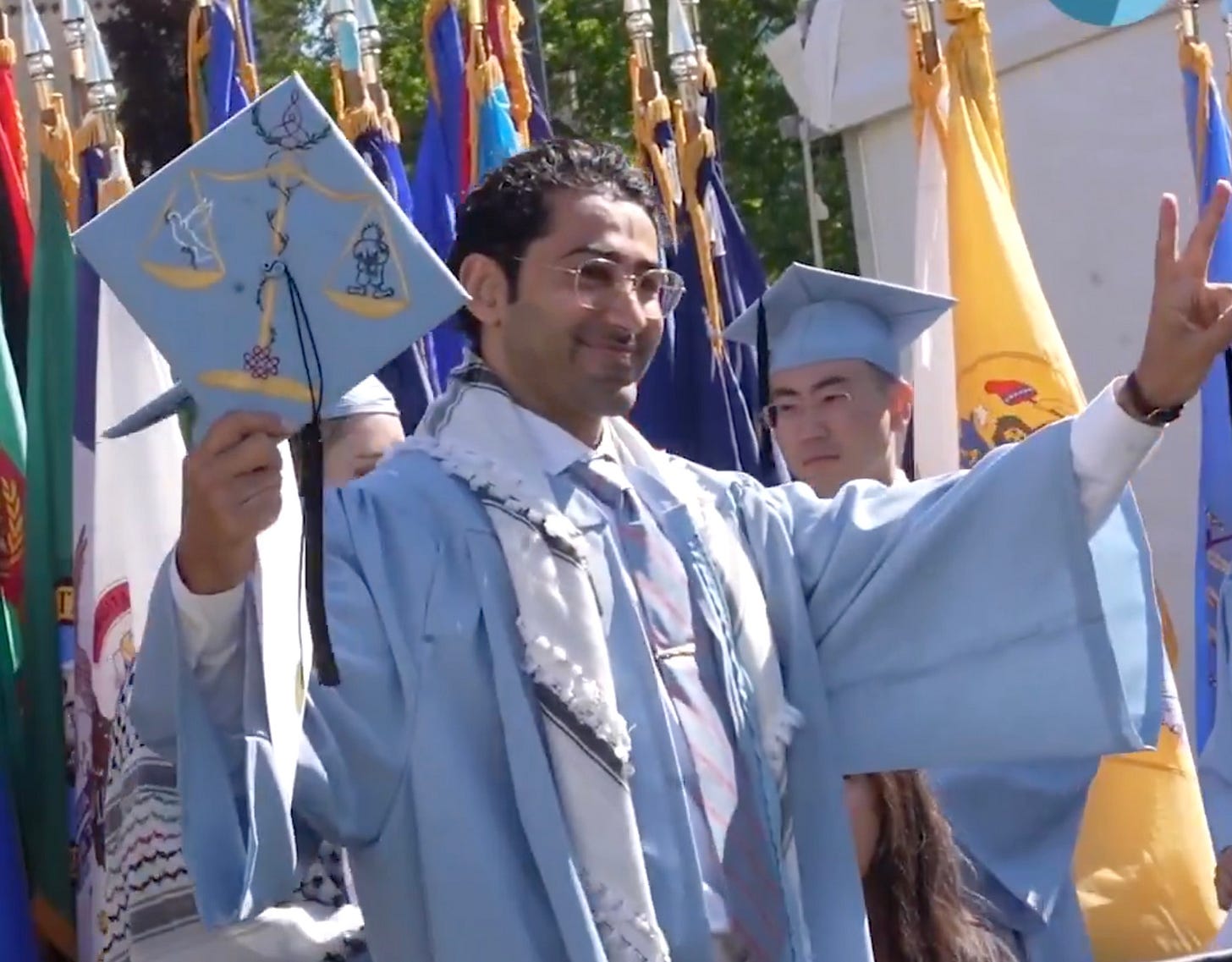
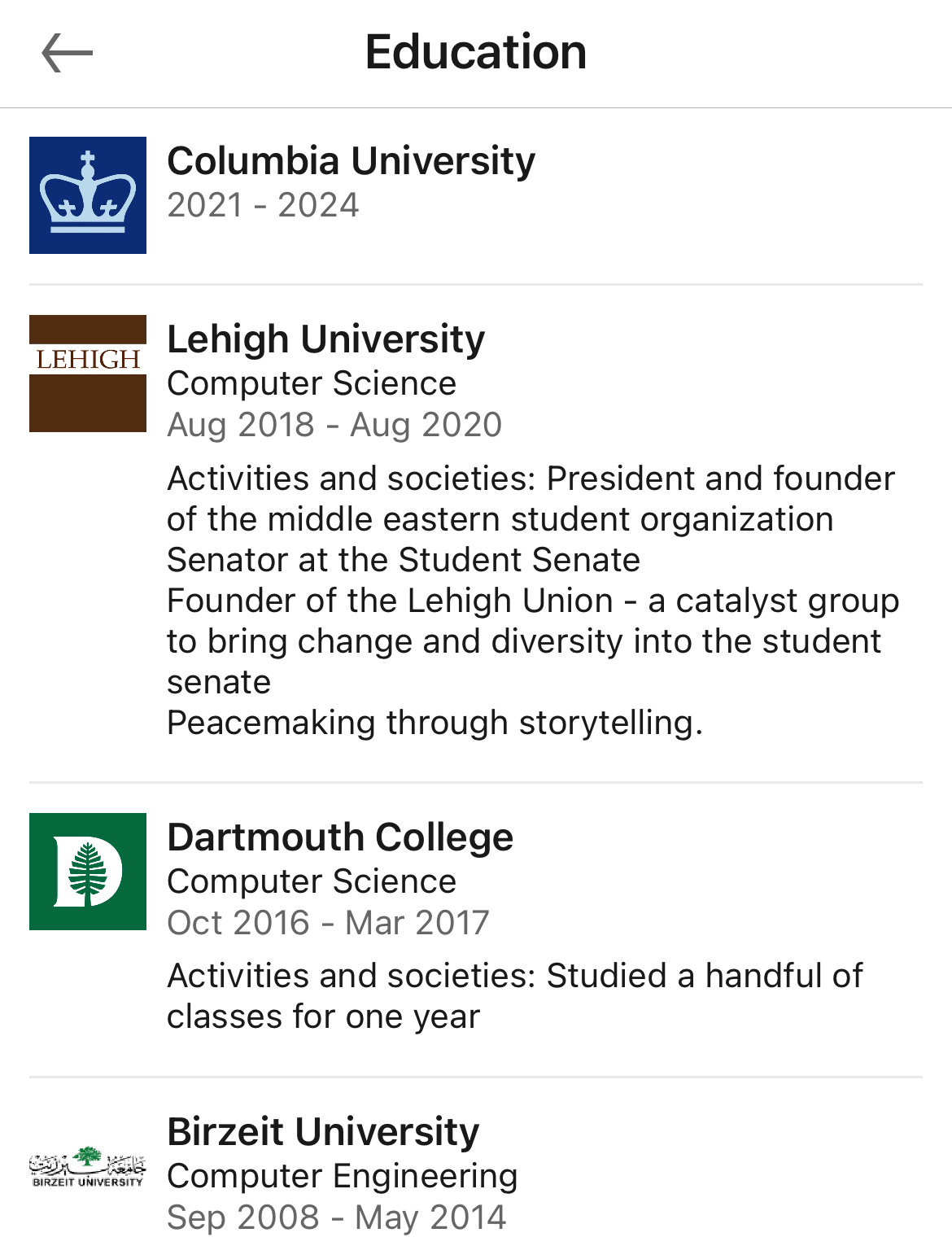
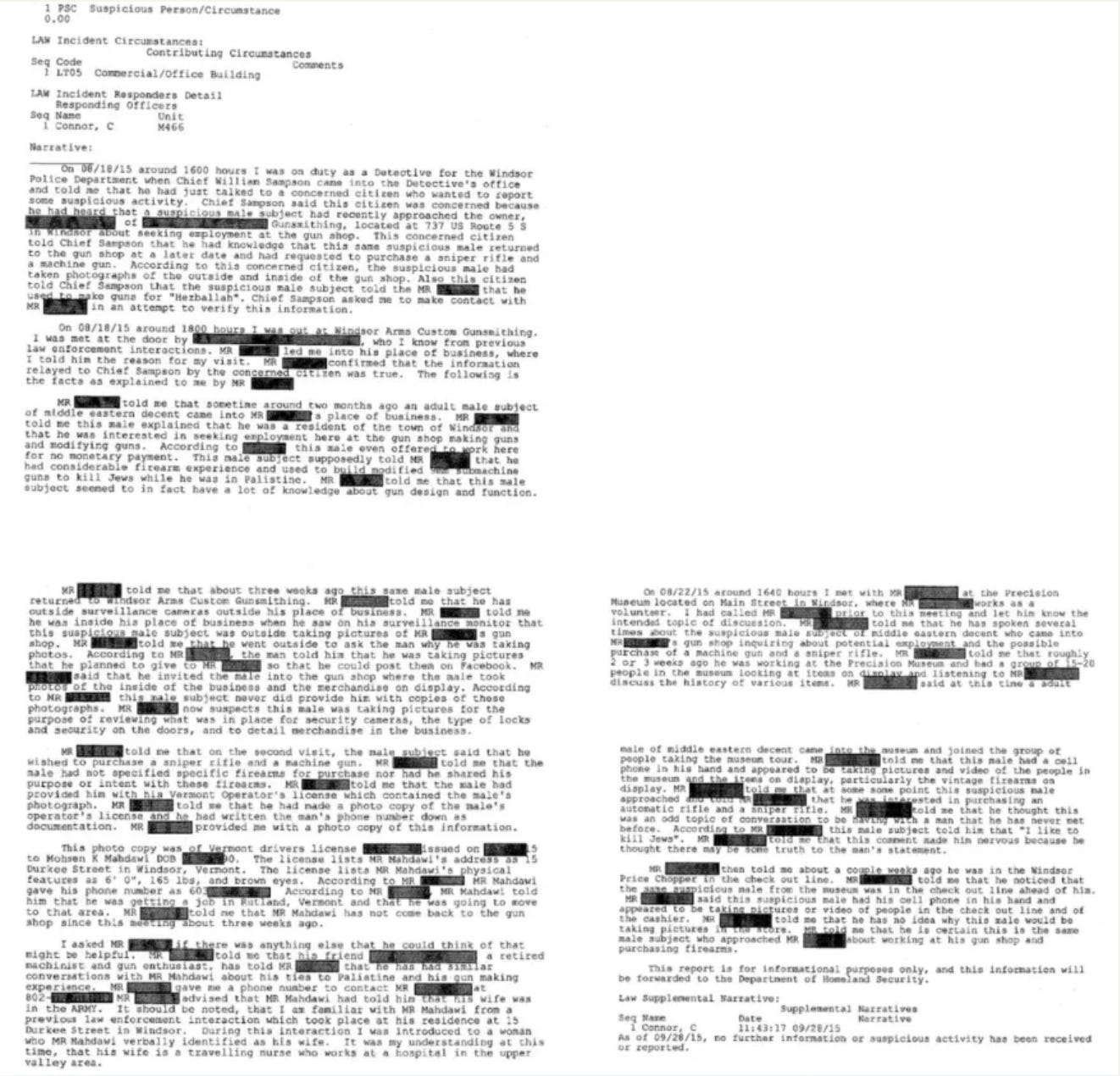

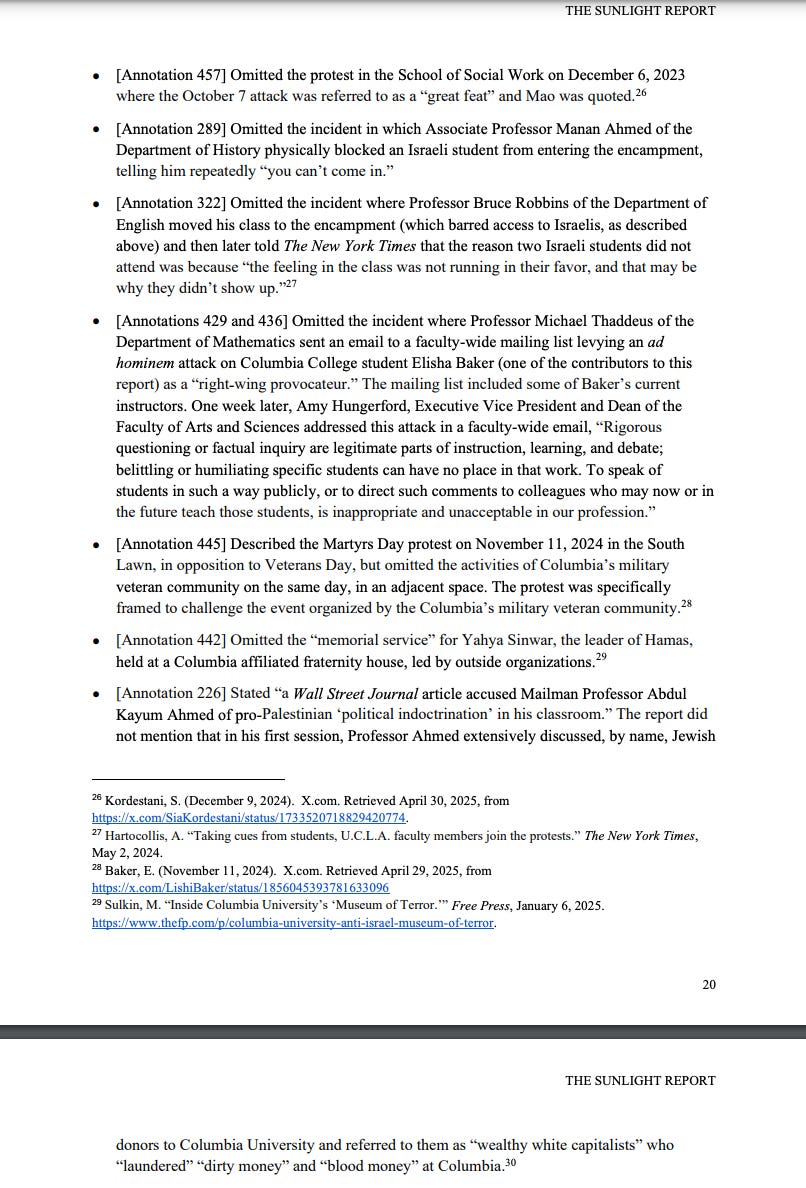


Guilty of what exactly?.. Standing up for his people in the face of an ongoing genocide?
And who does the authors of this piece stand up for? The same government that is inflicting that same genocide.